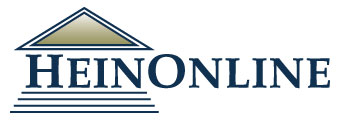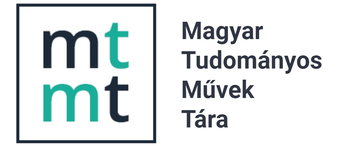Slovenia’s Nuclear Energy Pathway: Strategic Expansion, Regulatory Hurdles, and Future Prospects
Abstract
Slovenia boasts a longstanding tradition in the field of nuclear energy generation, with the Krško Nuclear Power Plant (NEK) traditionally playing an important role in the national energy system. As the country plans its future energy mix, nuclear power con- tinues to figure prominently, not least in light of the proposed JEK2 project. However, the development of new nuclear facilities faces significant challenges, including lengthy reg- ulatory procedures, complex construction processes, financial uncertainties, long-term issues related to nuclear fuel supply and waste management, as well as broader concerns regarding public acceptance. This article focuses on the legal dimensions shaping Slove- nia’s nuclear energy pathway, with non-legal considerations introduced solely insofar as they serve to elucidate or reinforce the legal analysis. Within this framework, the licens- ing process in Slovenia is examined in detail, with particular regard to its multi-step structure and the administrative challenges it poses. In addition, issues related to public procurement procedures, transparency, and governance are well discussed, particularly considering past infrastructure project failures. While Small Modular Reactors (SMRs) are being explored as a potential long-term solution, their licensing and deployment remain uncertain due to regulatory and spatial constraints. The paper also emphasises the importance of strategic workforce planning. Ultimately, the attainment of a resilient and secure energy future in Slovenia demands not only continued investment in nuclear infrastructure, but also a broader consideration of energy efficiency, security risks, and long-term sustainability—considerations which are addressed herein.
References
Alternator (2022) Jedrsko gorivo iz druge roke, Alternator, 12 May, https://tinyurl.com/zzsraz59 [2.3.2025]
Drnovšek K & Samec Berghaus N. (2021) Energetska infrastruktura v Sloveniji: Quo vadis?, Podjetje in delo, pp. 491–502.
Ernst & Young (2024) Independent Review of Economic Analysis Input Data of the JEK2 project, https://tinyurl.com/jkhsrfx8 [31.03.2025]
European Commission (2025) Slovenia’s Recovery and Resilience Supported Projects & Reforms, https://tinyurl.com/2j8xjdew [2.3.2025].
Ferčič A (2022) Evaluating the Formal Independence of National Regulatory Authorities in the European Union’s Energy Sector and Beyond, Zbornik Pravnog fakulteta u Zagrebu, 72(5), pp. 1183–1218, https://doi.org/10.3935/zpfz.72.5.02.
Ferčič A & Samec Berghaus N (2021) Energy Law in Slovenia, Kluwer Law International BV, The Netherlands.
Flekácsné Kocsis B. (2020) International, EU law and National Legal Frameworks on the use of atomic energy, Journal of Agricultural and Environmental Law, 28, pp. 202–229. https://doi.org/10.21029/JAEL.2020.28.202
GEN energija (2024) Povzetek predloga pobude za DPN za JEK2, https://tinyurl.com/5d36bnr5 [10.01.2025].
GEN energija (2025a) Frequently Asked Questions, https://jek2.si/pogostavprasanja/ [19.01.2025].
GEN energija (2025b) GEN energija nadaljuje projekt JEK2 in proučuje področje malih modularnih reaktorjev, https://tinyurl.com/3fjar74j [2.3.2025]
Government of the Republic of Slovenia (2023) Slovenian Nuclear Safety Administration visits the National Computer Security Incident Response Team, https://tinyurl.com/4vp7fxmp [2.3.2025].
Government of the Republic of Slovenia (2024) Chairing the Seventh European Conference on Nuclear Safety, https://tinyurl.com/4j853dev [2.3.2025].
IAEA (2023) Small Modular Reactors: Regulatory Approaches and Challenges. International Atomic Energy Agency, https://tinyurl.com/bddxdxkn [2.3.2025]
IAEA (2024) Contracting and Ownership Approaches for New Nuclear Power Plants. IAEA TECDOC Series No. 1750/Rev.1. International Atomic Energy Agency, Vienna.
JEK2 (2025) Suho skladiščenje izrabljenega goriva iz jedrskih elektrarn, https:// tinyurl.com/yc7kwwtx [2.3.2025]
Kocsis E. B. (2016) The International Atomic Energy Agency and problems of nuclear security, Journal of Agricultural and Environmental Law, 21, pp. 41–62.
Leskovec B & Škof R (2024) Ali se za JEK2 lahko uporabi varnostna izjema? https://tinyurl.com/mt8etffa [2.3.2025].
N1 (2023) Krška nuklearka bo premestila izrabljeno jedrsko gorivo, N1 Slovenia, 15 August, https://tinyurl.com/3zd22v2m [2.3.2025]
National Assembly of the Republic of Slovenia (2015) Act on Ordering a Parliamentary Investigation to Determine the Political Responsibility of Public Officials due to Suspicion of Their Involvement in the Preparation and Implementation of Procedures for the Joint Construction of the Sixth Block of the Šoštanj Thermal Power Plant, Official Gazette of the Republic of Slovenia, No. 30/14, https://tinyurl.com/5f42sz9v [15.02.2025]
NEK (2023) About NEK, https://www.nek.si/o-nas/o-nek [10.01.2025].
NEK (2025) Od urana do jedrskega goriva, https://tinyurl.com/3yskevzb [2.3.2025].
NEPN (2024) Posodobljeni celoviti nacionalni energetski in podnebni načrt Republike Slovenije, Vlada Republike Slovenije, Ljubljana, https://tinyurl.com/29yww5hw [20.12. 2024].
Nuklearna elektrarna Krško (2024) Public Information Brochure, https://tinyurl.com/4djbtn65 [2.3.2025].
OECD-NEA (2020) Unlocking Reductions in the Construction Costs of Nuclear: A Practical Guide for Stakeholders, OECD Publishing, Paris.
Petrovčič P (2024) Novi največji korupcijski škandal? Mladina, No. 15, https://tinyurl.com/4zpa5xzp [28.12.2024].
ReDMRJE (2024) Resolution on the Long-Term Peaceful Use of Nuclear Energy in Slovenia (Resolucija o dolgoročni miroljubni rabi jedrske energije v Sloveniji), https://tinyurl.com/542rta3x [10.01.2025].
ReDPS50 (2021) Resolution on Slovenia’s Long-Term Climate Strategy until 2050 (Resolucija o dolgoročni podnebni strategiji Slovenije do leta 2050, ReDPS50), Official Gazette of the Republic of Slovenia, Nos. 119/21 and 44/22 – ZVO-2.
ReJSV24–33 (2023) Resolution on Nuclear and Radiation Safety in the Republic of Slovenia for the Period 2024–2033, Official Gazette of the Republic of Slovenia, No. 122/23.
Republic of Slovenia (2003) Act on the Ratification of the Agreement on the Krško Nuclear Power Plant (BHRNEK), Official Gazette of the Republic of Slovenia – International Treaties, No. 20/03, 369, https://tinyurl.com/5xh8p9h2 [19.01.2025].
Republic of Slovenia (2024) Rules on the Expert Council for Radiation and Nuclear Safety, Official Gazette of the Republic of Slovenia, No. 114/24.
ReSPRS2050 (2023) Resolution on the Spatial Development Strategy of Slovenia 2050 (Resolucija o Strategiji prostorskega razvoja Slovenije 2050), Official Gazette of the Republic of Slovenia, No. 72/23.
SNSA (2023) Annual Report on Radiation and Nuclear Safety in the Republic of Slovenia, https://tinyurl.com/mr5wjau2 [19.01.2025].
SNSA (2024) News from Nuclear Slovenia, https://tinyurl.com/5n8skcx7 [10.01.2025].
SNSA (2025) Practical guidelines, https://tinyurl.com/54bea2uf [19.01.2025].
Spatial Development Strategy of Slovenia 2050 (Strategija prostorskega razvoja Slovenije 2050 – ReSPRS2050), Official Gazette of the Republic of Slovenia, No. 72/23.
SURS (2024) Energy production and dependency in Slovenia, Statistical Office of the Republic of Slovenia, https://www.stat.si/StatWeb/News/Index/13209 [10.01.2025].
Torkar S, Vokal Nemec B, Nemec T, Krajnc Š, Režonja Gumpot B & Živko T (2024) Licensing Procedure for the New Nuclear Power Plant JEK2, Proceedings of the International Conference Nuclear Energy for New Europe (NENE 2024), Slovenian Nuclear Society, Portorož, 9–12 September 2024, https://tinyurl.com/vevhwcrf [19.01.2025].
Valenčič M (2024) Slovenija, jedrska ali trajnostna? Nuclear Monitor 918, ZEG, https://zeg.si/uploads/zeg1/public/document/241-slovenija-jedrska_ali_trajnostna_1_sl.pdf [10.01.2025].
World Nuclear Association (2015) Licensing and Project Development of New Nuclear Plants. World Nuclear Association, London, https://tinyurl.com/m4wca8ay [10.01.2025].
World Nuclear Association (2024) Nuclear Power in Slovenia, https://tinyurl.com/4ycekm57 [10.01.2025].












